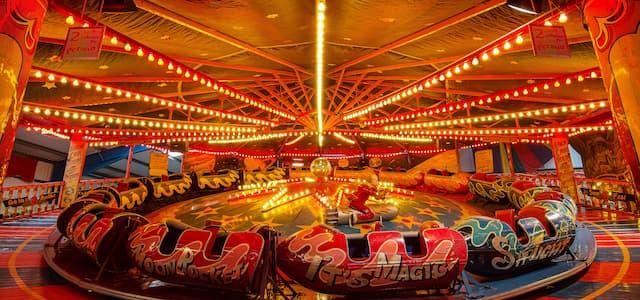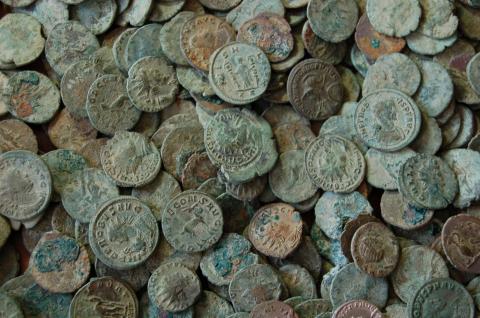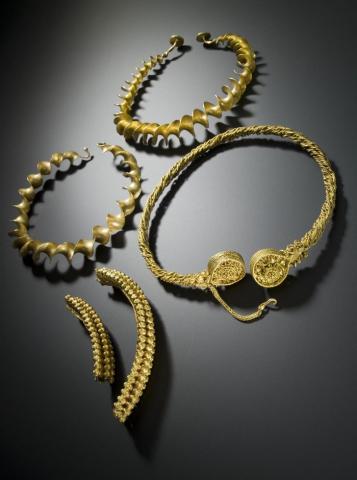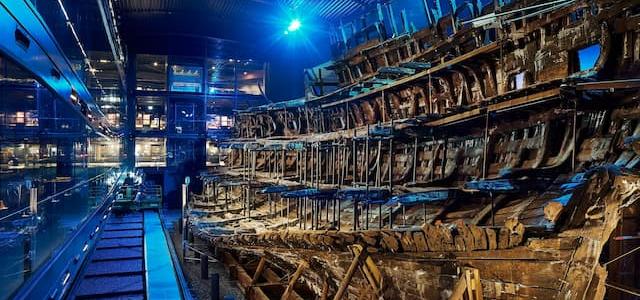
Two treasure hoards saved for nation on same day
The Art Fund and the National Heritage Memorial Fund (NHMF) are delighted to announce the Frome Hoard and the Iron Age Gold Hoard uncovered near Stirling in Scotland have been secured for the nation.


The Frome Hoard, the largest collection of Roman coins ever to be unearthed in a single container and the Hoard of four stunning Iron Age Gold neck ornaments known as Torcs will now go on public display thanks to significant assistance from the two funding bodies – one government and one private.
The Museum of Somerset takes possession of the £320,250 Frome Hoard and further funds of over £100,000 towards its conservation following the announcement of a £294,026 grant from the NHMF. The good news follows an intensive fundraising campaign kick-started by the Art Fund, the national fundraising charity for works of art, with a grant of £40,250, to help raise the funds needed for the extraordinary find of over 52,000 silver and bronze coins found last year by metal-detectorist Dave Crisp. Members of the public generously donated £13,657 towards the appeal, which the Art Fund match-funded with a further £10,000. The acquisition was also made possible thanks to funding from the Somerset Archaeological and Natural History Society, the MLA/V&A Purchase Grant Fund, the Headley Trust and other generous donations.
At the same time the National Museum of Scotland adds four gold torcs, dated between the 1st and 3rd century BC, to its collection. The £462,000 needed for the torcs was raised by grants of £154,000 from the National Heritage Memorial Fund and £100,000 from the Art Fund, £123,000 from the National Museums Scotland and £85,000 from the Scottish Government. The intricately designed neck ornaments which are of European significance were found in September 2009 in Stirlingshire by first time metal-detectorist David Booth.
Heritage Minister, John Penrose, said: “Making sure the Frome Hoard stays in Britain is great news, but ensuring it can stay in the very county in which it was discovered is even better. The fantastic work of all the organisations involved including the NHMF, along with the generosity of the public, will mean an important part of our Roman heritage will be enjoyed for years to come.”
Dame Jenny Abramsky, Chair of NHMF, said: “These stunning hoards, which provide true insight into Britain’s rich and diverse history, now join a magnificent collection of heritage treasures the National Heritage Memorial Fund has safeguarded for the nation over the last 31 years. They are truly precious and we are delighted to have given future generations the opportunity to enjoy and learn from them.”
Stephen Deuchar, Director of the Art Fund, said: “We are absolutely thrilled that not one but two wonderful Hoards of treasure have been added to collections at opposite ends of the UK. Both the Roman coins in Somerset and Torcs in Scotland are going to absolutely the right places where generations can learn, enjoy and be inspired by them, and experts can carry out vital research. In the case of the Frome coins it is very much thanks to the generosity of members of the public that we were able to double donations through our match-funding appeal. I’d also like to thank the National Heritage Memorial Fund for helping to make these acquisitions possible. This is an example of how private and public funds come together to save important heritage items.”
Steve Minnitt, Head of the Museum of Somerset, said: “The Frome Hoard has received a tremendous amount of public interest locally and from around the world and I am delighted that the campaign to acquire it was successful. Timing is perfect as we prepare for the opening of the Museum of Somerset in the summer of 2011. The story will not end there however. As the hoard undergoes study over the next year or two many more of its secrets will be unlocked.”
Dr Gordon Rintoul, Director, National Museums Scotland, said: “We are delighted to have secured this stunning hoard for display in Scotland’s national museum. We already attract over 600,000 visitors a year from Scotland and across the world, and expect many more when the fully redeveloped Museum opens this summer. The Hoard is certain to become one of the highlights of a visit to the Museum.”
Notes to editors
Frome Hoard funding breakdown
Acquisition costs £320,250
Conservation costs £105,000
National Heritage Memorial Fund £294,026
Somerset Museum £10,000
Somerset Archaeological and Natural History Society £10,000
MLA/V&A Purchase Grant Fund £20,000
The Headley Trust £20,000
Art Fund £50,250
Other donations £10,408
Public fundraising, led by the Art Fund £13,657
The Frome Hoard is the second largest collection of Roman coins ever to be found in the Britain and the largest ever to have been found in one single container. Comprising 52,503 coins dating between 253 and 293 AD, they cover the issues of 26 different Roman emperors and some have never been seen before. Over 760 of the coins belong to the reign of Marcus Aurelius Mauseus Valerius Carausius, known as Britain’s Pirate Emperor. Carausius led a revolt against the Empire declaring himself Emperor of Britain and Northern Gaul. This is the largest group of his coins found anywhere. Following conservation, the collection will go on permanent display at the Museum of Somerset in Taunton, when it reopens in the summer of 2011 following a £6.9million refurbishment.
Scottish Torcs funding breakdown
Acquisition costs £462,000
National Heritage Memorial Fund £154,000
The Art Fund £100,000
National Museums Scotland £123,000
Scottish Government £85,000
The Iron Age Torcs reveal the wealth and connections of people in Scotland at the time. The items consist of two ribbon torcs (a local style of jewellery made from a twisted ribbon of gold); half an ornate torc of southern French origin (the only one of its kind found in Britain); and a unique braided gold wire torc, which shows strong influences of Mediterranean craftsmanship.
The Art Fund
The Art Fund is the national fundraising charity for works of art and plays a major part in enriching the range and quality of art on public display in the UK. It campaigns, fundraises and gives money to museums and galleries to buy and show art, and offers many ways of enjoying it through its events and membership scheme. Under its programme of charitable activity, initiatives include sponsoring the UK tour of the ARTIST ROOMS collection so that it reaches several million people across the UK each year, and fundraising: two recently successful campaigns include bringing in £6 million to save the Staffordshire Hoard for the West Midlands and Pieter Brueghel the Younger’s The Procession to Calvary for Nostell Priory, in partnership with the National Trust. The Art Fund is funded entirely by its art-loving and museum-going members and supporters who believe that great art should be for everyone to enjoy.
The National Museum Scotland
Please note that National Museums Scotland (no ‘of’ or ‘the’) is our corporate name. Our individual museums are called the National Museum of Scotland, the National Museum of Flight, the National Museum of Rural Life, the National Museum of Costume and the National War Museum.
Museum of Somerset
The Frome Hoard will be prominently displayed in the Museum of Somerset, Taunton, when it re-opens in the Summer of 2011. The museum is presently undergoing a £6.9 million refurbishment largely funded by the Heritage Lottery Fund. Locally, support for the hoard’s acquisition has been shown by a contribution of £10,000 from the Somerset Archaeological and Natural History Society.
Portable Antiquities Scheme (England and Wales)
The Portable Antiquities Scheme was established to encourage the recording of archaeological finds found by the public, and also supports the mandatory reporting of Treasure (such as the Frome Hoard) under the Treasure Act 1996. The Scheme is managed by the British Museum on behalf of the Museums, Libraries & Archives Council. Across England and Wales its Finds Liaison Officers liaise with finders and record their finds, which are published on its online database (www.finds.org.uk) so that people can learn about the archaeology of their local area, and also for the advancement of archaeological knowledge.
Treasure Trove (Scotland)
Since ancient times, the common law of Scotland has been that Treasure Trove and other property which is lost or abandoned, or has no obvious owner, belongs to the Crown. They do not belong to the owner of the land where they were found, or to the finder, but are allocated to public museums for research or public exhibition. The Treasure Trove Unit based at the National Museum of Scotland is an independent body that works on behalf of The Queen's and Lord Treasurer's Remembrancer (QLTR) and accepts these objects on the Crown's behalf, and arranges for them to be housed in public museums around the country, acting on the advice of the Scottish Archaeological Finds Allocation Panel (SAFAP). The QLTR recognises the contribution of members of the public who make chance finds and will, in most cases, make an ex-gratia reward payment to the finder.
MLA/V&A Purchase Grant Fund
The MLA/V&A Purchase Grant Fund is a government fund that helps regional museums, record offices and specialist libraries in England and Wales to acquire objects relating to the arts, literature and history.
It was established at the Victoria and Albert Museum (V&A) in 1881 and continues to be part of its nationwide work.
The annual grants budget, currently £900,000, is provided by the Museums, Libraries and Archives Council (MLA).
Each year, the Purchase Grant Fund considers some 250 applications and awards grants to around 100 organisations, enabling acquisitions of around £3million to go ahead.
Further information
Art Fund Press contact
Phone: 020 7225 4888 email: media@artfund.org
Lizzie Bloom, Press & Campaigns Manager, the Art Fund,
Phone: 020 7225 4804 email: lbloom@artfund.org
Stephen Minnitt, Head of Museum of Somerset
Phone: 07917 837 521. email: scminnitt@somerset.gov.uk
Roger Bland, Head of Portable Antiquities and Treasure,
Phone: 020 7323 8611 / 0898 966 9414 e-mail: rbland@thebritishmuseum.ac.uk
Natasha Ley/Alison Scott, NHMF Press Office,
Phone: 020 7591 6143 email: natashal@hlf.org.uk

